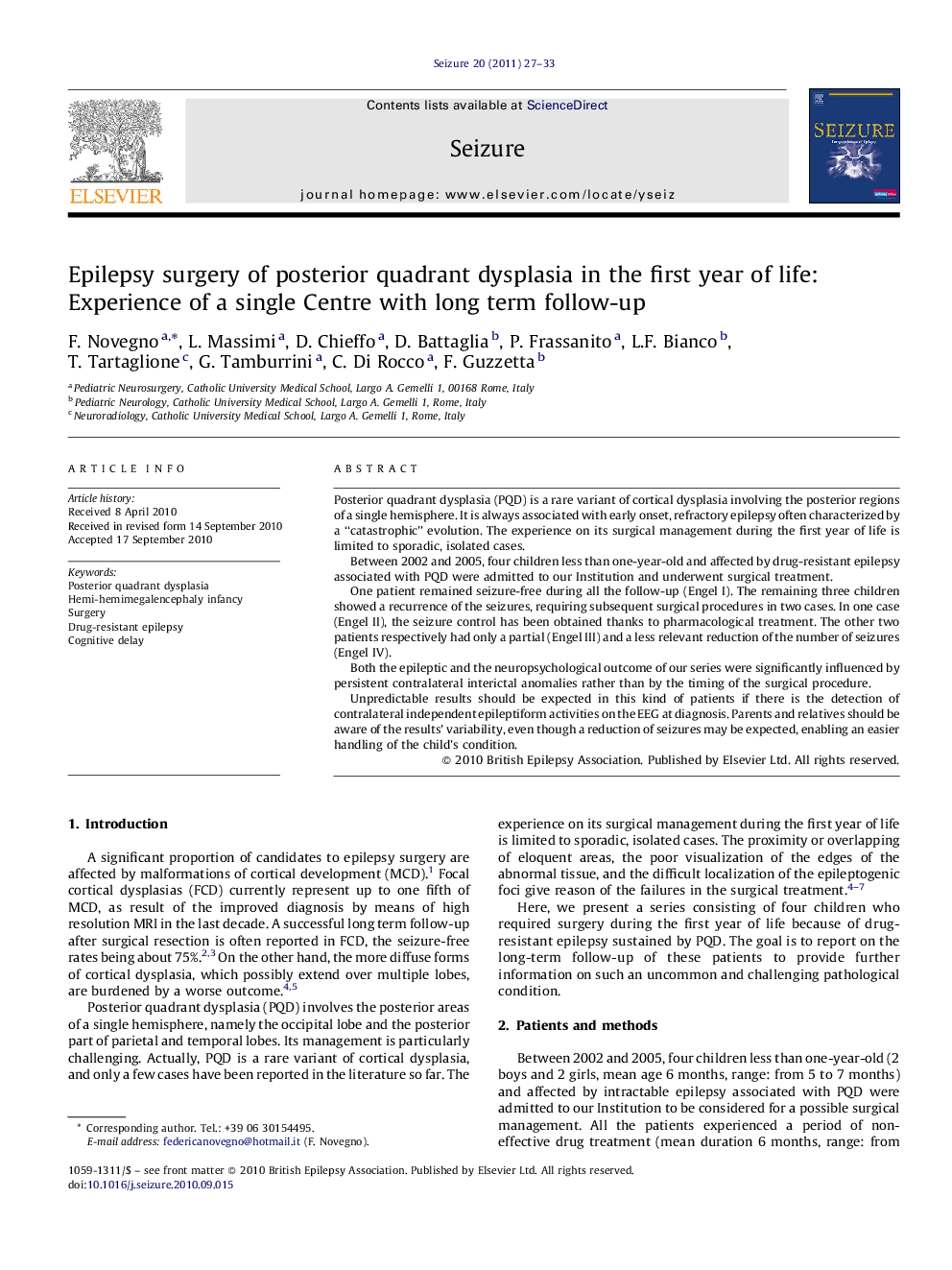| Article ID | Journal | Published Year | Pages | File Type |
|---|---|---|---|---|
| 342767 | Seizure | 2011 | 7 Pages |
Posterior quadrant dysplasia (PQD) is a rare variant of cortical dysplasia involving the posterior regions of a single hemisphere. It is always associated with early onset, refractory epilepsy often characterized by a “catastrophic” evolution. The experience on its surgical management during the first year of life is limited to sporadic, isolated cases.Between 2002 and 2005, four children less than one-year-old and affected by drug-resistant epilepsy associated with PQD were admitted to our Institution and underwent surgical treatment.One patient remained seizure-free during all the follow-up (Engel I). The remaining three children showed a recurrence of the seizures, requiring subsequent surgical procedures in two cases. In one case (Engel II), the seizure control has been obtained thanks to pharmacological treatment. The other two patients respectively had only a partial (Engel III) and a less relevant reduction of the number of seizures (Engel IV).Both the epileptic and the neuropsychological outcome of our series were significantly influenced by persistent contralateral interictal anomalies rather than by the timing of the surgical procedure.Unpredictable results should be expected in this kind of patients if there is the detection of contralateral independent epileptiform activities on the EEG at diagnosis. Parents and relatives should be aware of the results’ variability, even though a reduction of seizures may be expected, enabling an easier handling of the child's condition.
